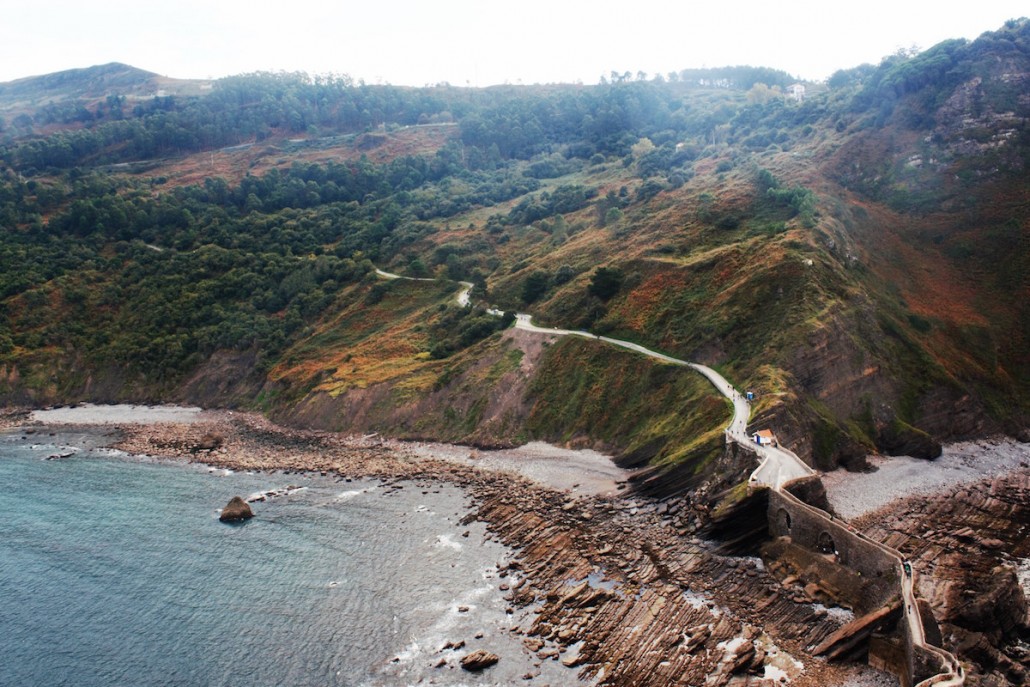6 Do’s and don’ts of studying abroad

There are many ways to take advantage of your study abroad semester, just as blogger Janis Yue has done in Bilbao. Janis Yue | Daily Trojan
Profile pictures with the Eiffel Tower, Instagram posts with Moroccan camels, status updates proclaiming feelings of gratitude.
Scanning through social media, it’s very easy to believe that studying abroad is only made up of positive experiences. While exploring the world away from home can be beautiful, impactful and overall a priceless experience, it’s important to know that creating a good study abroad experience doesn’t always come without active effort. There are lows and bad days no matter where you are in the world, but there are specific steps that you can take while studying abroad in order to have as many good days as possible.
Here is a list of dos and don’ts of study abroad to have the best experience possible. While everyone seeks a different study abroad story, here are six lessons that I’ve personally learned that could help improve other people’s journeys:
Do’s
1. Do remember to stay in your designated study abroad city some weekends. Many people see studying abroad as being a once in a lifetime opportunity to go to every major city within a reasonable distance. While there are many awesome benefits to traveling as a student, don’t forget to get to know the city you’re studying in and really create a home away from home. Maintain a balance of breadth and depth. Some of the best weekends I’ve had studying abroad have been spent just relaxing with my host family in Bilbao.
2. Ask for a local opinion. Though it might be uncomfortable at first, asking locals where to go (to eat, drink or just hang out) really is the best way to gain special tips about the city. Or you might even learn the quickest way to get to the grocery store. Locals have told me things to do that are off the beaten path, such as hiking the San Juan de Gaztelugatxe (pictured above) on the coast of the Basque Country. It’s easy to turn to your phone for information without having to engage in human interaction, but asking locals is generally more informative and faster. It’s a great way to practice your language as well if you’re learning one.
3. Do remember that you are indeed incredibly and marvelously blessed to be having this experience! It’s one that not everyone is lucky enough to have.
Don’ts
1. Don’t expect to become completely fluent in a new language, especially without actively taking steps to improve. I came to Spain with the idea that within a few weeks I would be able to understand every conversation and speak like a local. Even after eight weeks, it’s becoming more and more clear that Spanish will always be a work in progress for me. What’s more, is that just being in Spain doesn’t mean that I’ll automatically pick up Spanish. While I am improving significantly, taking an active approach by watching TV in Spanish instead of English, listening to Spanish music and having conversations with American friends in Spanish are crucial to improvement.
2. Don’t spend too much time on social media or talking to friends from back home. Staying connected to friends and family is important, but it’s easy to overdo it by constantly Facebook messaging or Skyping. There will be time to reconnect when you go back home. There will be time to tell stories and update each other on your lives. Spend more of your time creating the stories first while you’re in a different part of the world.
3. Don’t feel guilty for spending a day in. While you might feel pressure to take advantage of every moment and every day while you’re abroad, I think it’s very important to take a few mental health days to just process everything that is happening.
